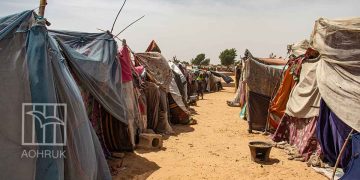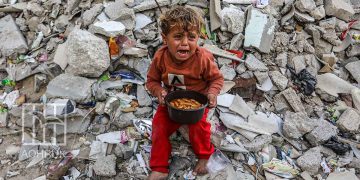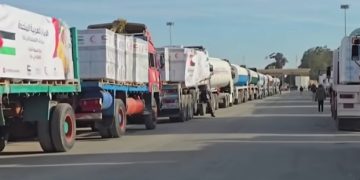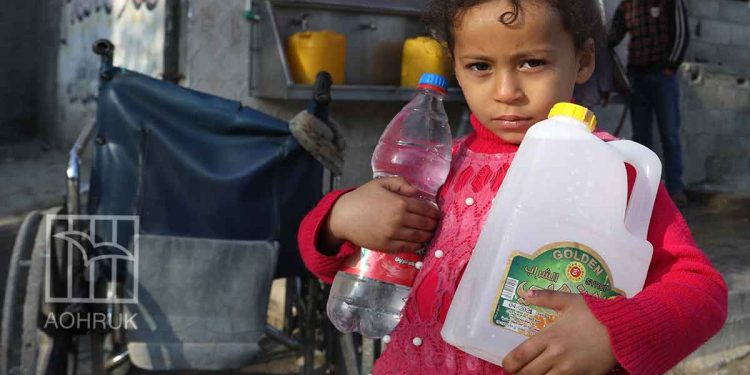In a harrowing reflection of the ongoing campaign of genocide by Israeli forces in Gaza, millions of civilians are locked in a daily struggle for survival amid the deliberate destruction of infrastructure and denial of life’s most basic necessities.
At the heart of this catastrophe is the water crisis—emerging as a deliberate tool of mass punishment, with thirst wielded as a weapon to subjugate the civilian population, in blatant violation of international humanitarian law.
According to a recent statement by UNICEF, between 65 to 70 percent of Gaza’s water system has been destroyed due to relentless Israeli bombardment, making the delivery of water via pipelines virtually impossible.
The humanitarian situation has been described as catastrophic. Aid workers are now forced to transport water using trucks, yet fuel shortages—also a result of the ongoing blockade—have brought distribution efforts to a near halt.
UNICEF spokesperson Jonathan Crickx stated that children are the first victims of this war: “We are witnessing heartbreaking scenes of children torn by hunger and killed by thirst, walking for kilometres in search of a sip of water or a bite of food.”
He added, “Ninety percent of families are struggling to access clean drinking water. Some are even unable to wash or clothe their infants.”
The average water consumption per person in Gaza has plummeted to just 3 litres per day—merely one-fifth of the minimum 15-litre survival threshold set by the United Nations.
Under international law, including the Fourth Geneva Convention, Israel—as the occupying power—bears full responsibility for the protection of civilians and is explicitly prohibited from targeting civilian infrastructure or using hunger and thirst as weapons of war.
Israel controls the water network that previously supplied 70 percent of Gaza’s needs. That system was completely destroyed during the April escalation. Additionally, the war has led to the shutdown of desalination plants—responsible for 7 percent of water supply—following fuel depletion and contamination of groundwater sources, further exacerbating the crisis.
This systematic destruction of the foundations of civilian life, including access to water, food, and healthcare, constitutes a key component of the crime of genocide as defined in the 1948 Genocide Convention.
Despite this, the international community remains largely silent or paralysed. UN officials have described the situation as a “total collapse of humanitarian norms,” as urgent global calls continue to mount for an immediate end to hostilities and accountability for those responsible for these grave violations.
Water as a Weapon of Genocide: Gaza Dies of Thirst Under Siege
Related Posts
Latest
New Israeli Decisions Undermine Palestinian Ownership and Presence
February 9, 2026
Gazan Children Under the Siege Left Without Education or Treatment
February 7, 2026
Copyright ©2020, AOHR UK All Rights Reserved.



























